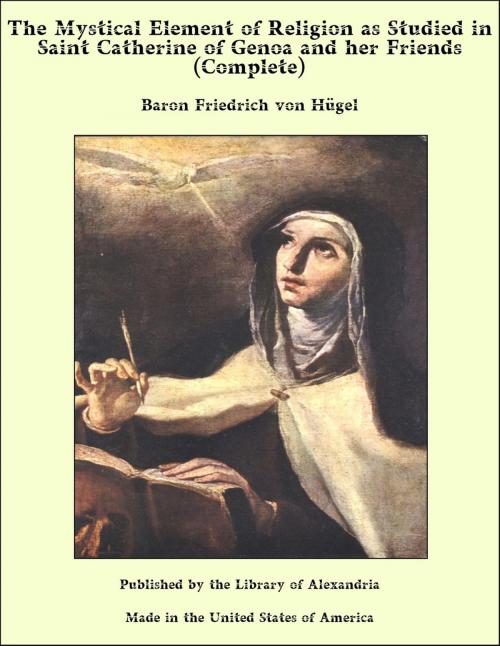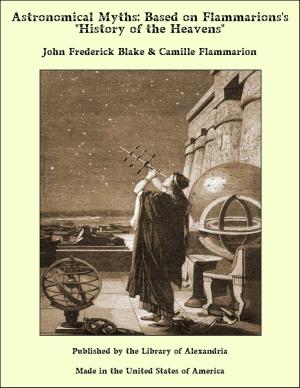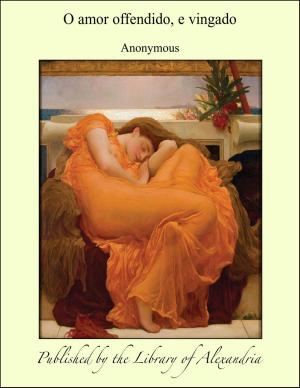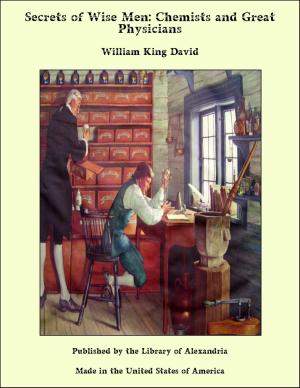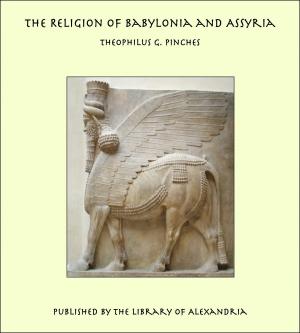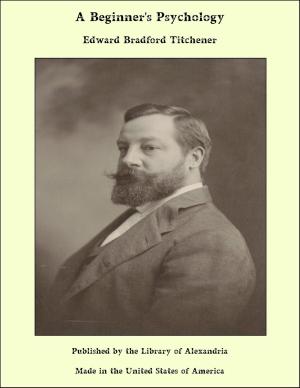The Mystical Element of Religion as Studied in Saint Catherine of Genoa and her Friends (Complete)
Nonfiction, Religion & Spirituality, New Age, History, Fiction & Literature| Author: | Baron Friedrich von Hügel | ISBN: | 9781465604620 |
| Publisher: | Library of Alexandria | Publication: | March 8, 2015 |
| Imprint: | Language: | English |
| Author: | Baron Friedrich von Hügel |
| ISBN: | 9781465604620 |
| Publisher: | Library of Alexandria |
| Publication: | March 8, 2015 |
| Imprint: | |
| Language: | English |
Amongst the apparent enigmas of life, amongst the seemingly most radical and abiding of interior antinomies and conflicts experienced by the human race and by individuals, there is one which everything tends to make us feel and see with an ever-increasing keenness and clearness. More and more we want a strong and interior, a lasting yet voluntary bond of union between our own successive states of mind, and between what is abiding in ourselves and what is permanent within our fellow-men; and more and more we seem to see that mere Reasoning, Logic, Abstraction,—all that appears as the necessary instrument and expression of the Universal and Abiding,—does not move or win the will, either in ourselves or in others; and that what does thus move and win it, is Instinct, Intuition, Feeling, the Concrete and Contingent, all that seems to be of its very nature individual and evanescent. Reasoning appears but capable, at best, of co-ordinating, unifying, explaining the material furnished to it by experience of all kinds; at worst, of explaining it away; at best, of stimulating the purveyance of a fresh supply of such experience; at worst, of stopping such purveyance as much as may be. And yet the Reasoning would appear to be the transferable part in the process, but not to move; and the experience alone to have the moving power, but not to be transmissible. Experience indeed and its resultant feeling are always, in the first instance, coloured and conditioned by every kind of individual many-sided circumstances of time and place, of race and age and sex, of education and temperament, of antecedent and environment. And it is this very particular combination, just this one, so conditioned and combined, coming upon me just at this moment and on this spot, just at this stage of my reach or growth, at this turning of my way, that carries with it this particular power to touch or startle, to stimulate or convince. It is just precisely through the but imperfectly analyzable, indeed but dimly perceived, individual connotation of general terms; it is by the fringe of feeling, woven out of the past doings and impressions, workings and circumstances, physical, mental, moral, of my race and family and of my own individual life; it is by the apparently slight, apparently far away, accompaniment of a perfectly individual music to the spoken or sung text of the common speech of man, that I am, it would seem, really moved and won. And this fringe of feeling, this impression, is, strictly speaking, not merely untransferable, but also unrepeatable; it is unique even for the same mind: it never was before, it never will be again. Heraclitus, if we understand that old Physicist in our own modern, deeply subjective, largely sentimental way, would appear to be exactly right: you cannot twice step into the same stream, since never for two moments do the waters remain identical; you yourself cannot twice step the same man into the same river, for you have meanwhile changed as truly as itself has done, Πάντα ε: all things and states, outward and inward, appear indeed in flux: only each moment seems to bring, to each individual, for that one moment, his power to move and to convince.
Amongst the apparent enigmas of life, amongst the seemingly most radical and abiding of interior antinomies and conflicts experienced by the human race and by individuals, there is one which everything tends to make us feel and see with an ever-increasing keenness and clearness. More and more we want a strong and interior, a lasting yet voluntary bond of union between our own successive states of mind, and between what is abiding in ourselves and what is permanent within our fellow-men; and more and more we seem to see that mere Reasoning, Logic, Abstraction,—all that appears as the necessary instrument and expression of the Universal and Abiding,—does not move or win the will, either in ourselves or in others; and that what does thus move and win it, is Instinct, Intuition, Feeling, the Concrete and Contingent, all that seems to be of its very nature individual and evanescent. Reasoning appears but capable, at best, of co-ordinating, unifying, explaining the material furnished to it by experience of all kinds; at worst, of explaining it away; at best, of stimulating the purveyance of a fresh supply of such experience; at worst, of stopping such purveyance as much as may be. And yet the Reasoning would appear to be the transferable part in the process, but not to move; and the experience alone to have the moving power, but not to be transmissible. Experience indeed and its resultant feeling are always, in the first instance, coloured and conditioned by every kind of individual many-sided circumstances of time and place, of race and age and sex, of education and temperament, of antecedent and environment. And it is this very particular combination, just this one, so conditioned and combined, coming upon me just at this moment and on this spot, just at this stage of my reach or growth, at this turning of my way, that carries with it this particular power to touch or startle, to stimulate or convince. It is just precisely through the but imperfectly analyzable, indeed but dimly perceived, individual connotation of general terms; it is by the fringe of feeling, woven out of the past doings and impressions, workings and circumstances, physical, mental, moral, of my race and family and of my own individual life; it is by the apparently slight, apparently far away, accompaniment of a perfectly individual music to the spoken or sung text of the common speech of man, that I am, it would seem, really moved and won. And this fringe of feeling, this impression, is, strictly speaking, not merely untransferable, but also unrepeatable; it is unique even for the same mind: it never was before, it never will be again. Heraclitus, if we understand that old Physicist in our own modern, deeply subjective, largely sentimental way, would appear to be exactly right: you cannot twice step into the same stream, since never for two moments do the waters remain identical; you yourself cannot twice step the same man into the same river, for you have meanwhile changed as truly as itself has done, Πάντα ε: all things and states, outward and inward, appear indeed in flux: only each moment seems to bring, to each individual, for that one moment, his power to move and to convince.
